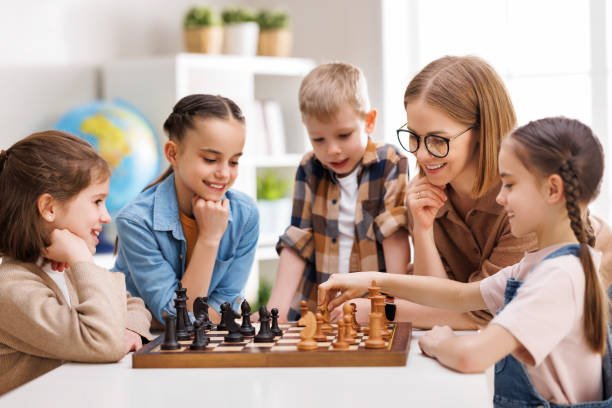Palma de Mallorca is one of those cities where life feels calm, colorful, and full of stories. The sea breeze, the narrow streets, the cozy cafés — everything seems to move at its own peaceful rhythm. But hidden among this calm is a growing wave of young minds who are falling in love with one of the most beautiful games ever created — chess.
If you walk into a park in Palma on a sunny afternoon, you might spot two people bent over a chessboard, their eyes locked in deep thought. Or you might find a group of kids in a local club, excitedly talking about their next tournament. Chess is alive here — not just as a game, but as a way to think better, focus longer, and believe in yourself.
Online Chess Training
Online chess training has completely changed how students learn and enjoy chess. Years ago, if you wanted to learn chess, you had to find a local club or coach nearby. You would pack your chessboard, travel, and sit for an hour or two of lessons once or twice a week.
It worked for some, but not for everyone. Many students could not find good coaches nearby, and even when they did, the training often felt random — some lessons were good, some not so much, and there was rarely a clear plan to follow.
But today, with the rise of online learning, chess has become more open, more personal, and more powerful. Now, a child sitting in Palma de Mallorca can learn directly from a FIDE-certified coach who lives thousands of kilometers away.
All they need is a laptop, an internet connection, and a curious mind. What makes online chess training so special is not just the access to great coaches but also the structure it brings.
At Debsie, for example, every student follows a proper curriculum. Each lesson builds on the last one. A beginner first learns how to move the pieces, understand checkmates, and spot simple tactics.
As they improve, they begin to explore deeper ideas — like openings, middlegame planning, and endgame techniques. Everything is planned step-by-step so that no student ever feels lost or left behind.
Online training also gives students something that offline training often cannot — flexibility. Imagine a student in Palma who has school until late evening. With online classes, they don’t have to rush or travel across town. They can log in from home, relax, and learn comfortably.
Parents love this too because they can easily watch their child’s progress, get updates from coaches, and see how lessons are helping their child improve in both chess and thinking skills.
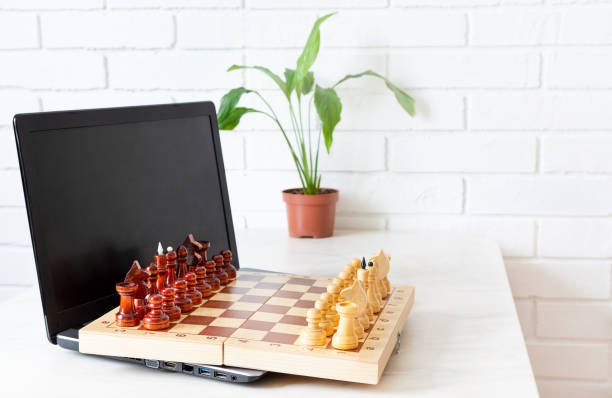
The Landscape of Chess Training in Palma de Mallorca and Why Online Chess Training is the Right Choice
Palma de Mallorca has always had a quiet but passionate chess scene. You can find small local clubs where players gather to play friendly matches or prepare for regional tournaments.
Some schools have chess as part of their extracurricular programs, and there are even a few local coaches who offer private lessons. For families who want to introduce their children to chess, these options might seem good at first.
However, when you look closer, you begin to notice some limitations. Many local chess clubs in Palma are focused mainly on casual play. They meet once or twice a week and do not follow a structured plan. Students play games but rarely receive detailed feedback. The sessions are fun, but progress tends to be slow.
Private tutoring in Palma can also be quite varied. Some coaches are highly experienced, but others may not follow a clear curriculum. Lessons depend on what the coach feels like teaching that day, which means there’s no consistent growth path.
Another challenge is competition. In a small city, the number of players at the same skill level might be limited. Once a student becomes stronger, finding equally skilled opponents can be hard. That’s when motivation often drops, and many young learners stop playing seriously.
This is why online chess training has become such an important alternative. With online lessons, students in Palma are no longer limited to local opportunities.
They can learn from international coaches, join large online tournaments, and follow a structured curriculum built for real growth. They can train with peers from other countries who challenge them and inspire them to push further.
How Debsie is the Best Choice When It Comes to Chess Training in Palma de Mallorca
When people talk about chess schools that actually change how children think, Debsie always stands at the top. What makes Debsie special is not just the fact that it is an online chess academy — it’s that every single thing about it is carefully built to help children learn chess the right way.
Many academies focus only on winning games. But Debsie focuses on something deeper — building smart thinkers for life. The idea is simple. If a child can learn to think clearly, stay calm under pressure, and plan ahead in chess, they can do the same in school, in life, and in every challenge they face.
Debsie is powered by a team of FIDE-certified coaches who have years of experience teaching children from different countries. These coaches are not just strong players — they are caring mentors. They understand that every child is different.
Some are shy and take time to open up. Some are full of energy and love to talk through every move. Debsie’s coaches adapt to each student’s learning style so that every child feels comfortable and confident.
Each class at Debsie follows a structured plan. There are lessons for beginners, intermediates, and advanced players. The moment a student joins, they go through a small evaluation to see what level they are at.
Then a personalized roadmap is made for them. Parents love this because it gives them a clear idea of what their child will learn next and how progress will be tracked.

Offline Chess Training
Offline chess training — or traditional in-person coaching — has been around for centuries. Many of the great masters learned this way, sitting face-to-face with their teachers, playing countless games, and analyzing each one by hand.
There’s something beautiful and classic about it. It allows personal connection, eye contact, and physical presence. In a small city like Palma de Mallorca, many children still start their chess journey this way.
Some schools host chess clubs after classes, where students gather to play under a teacher’s guidance. A few community centers also run weekly workshops. These programs can help children socialize, make friends, and experience the joy of over-the-board play.
However, the world has changed. While offline training still has its charm, it often lacks the structure and flexibility modern students need. Local clubs may only meet once a week. Coaches might not have formal certification or access to global-level materials. And if a student misses a class, catching up becomes hard.
In Palma, many parents have started to notice this. They see that offline lessons, though fun, often move slowly. The teaching style depends heavily on the coach’s availability and personal method. There’s rarely a curriculum that builds skill step-by-step. Some clubs focus more on casual play than actual learning.
Another issue is travel. Even though Palma is not a huge city, moving around for lessons can take time. For busy families, this becomes stressful — especially when schoolwork, sports, and other activities already fill the schedule.
Drawbacks of Offline Chess Training
For many families, the idea of offline chess training sounds appealing at first. You get to meet a real coach, shake hands, and play across a real board. It feels traditional, personal, and nostalgic.
But when you look closely, there are several challenges that make offline chess training less effective — especially for modern learners who need structure, consistency, and flexibility.
One of the biggest drawbacks of offline chess training is that it lacks structure. Most local clubs or private tutors do not follow a fixed curriculum. The lessons are often based on what the coach feels like teaching that day or what the students happen to play.
While this can be fun, it rarely builds real long-term improvement. Students may play many games but never truly learn how to think strategically or analyze their mistakes deeply.
At Debsie, every student follows a clear path — from beginner to expert — and every lesson builds upon the last. But in most offline settings, there’s no clear direction.
This makes it hard for both students and parents to track progress. Many children attend months of offline sessions without being able to see how much they have really improved.
Another big issue with offline chess training is limited access to top coaches. In Palma de Mallorca, there are only a handful of local coaches, and their skill levels vary widely. Some may be excellent players but not experienced teachers.
Teaching chess — especially to children — requires patience, empathy, and the ability to simplify complex ideas. Not every strong player can do that.
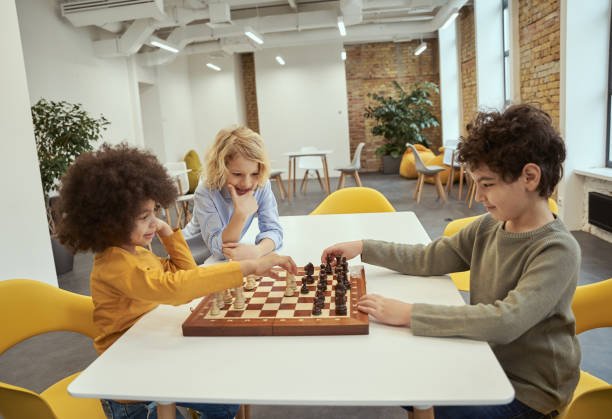
Best Chess Academies in Palma de Mallorca, Spain
Palma de Mallorca has a small but passionate chess community. There are a few local clubs, some private tutors, and a few online options. But when it comes to structured, high-quality, and modern chess education, one academy stands out far above the rest — Debsie.
1. Debsie
Debsie is not just another chess academy — it is a complete learning experience. It was built with one simple mission: to help children fall in love with chess while growing into confident, thoughtful, and patient individuals.
What makes Debsie truly special is how it combines world-class teaching with warmth, care, and community.
Every student who joins Debsie goes through a personalized journey. The process starts with a free trial class, where students get to meet a coach, play a few test games, and learn in a fun and friendly way.
This trial helps both the student and the coach understand where the learner currently stands. After that, the coach creates a personalized study plan tailored to that student’s skill level and learning speed.
The academy’s teaching model is built around three core ideas — structure, interaction, and growth. Every class follows a clear path, helping students move from beginner to intermediate and eventually to advanced play.
Each topic is explained in simple language, with examples, puzzles, and practice games to make learning fun and memorable.
Students at Debsie also get access to live interactive classes every week. These sessions are small in size, allowing every student to speak, ask questions, and share their thoughts. The coaches use stories, real games, and visual tools to make lessons engaging.
2. Ghent Community Chess Club In-Person Evenings
Ghent has friendly club nights where players of many ages meet, play, and chat. The room is social, and longer games help learn the clock and score sheet. For teens who enjoy face-to-face play, this can be a nice add-on.
Still, most sessions are not built as a step-by-step class. The group is mixed in level, and feedback is brief. If you already have a study plan, a club night can give sparring. If you need a full learning path, you will not find it here. Debsie gives that path, plus notes and data, all from home. A good blend is Debsie for learning, club for extra games when it suits your week.
3. Flanders Youth Chess Days (Regional Events)
Across Flanders, there are youth days and camps now and then. These bring energy and fun. Children meet new friends, try drills, and play a few rounds. A day like this can spark interest.
But growth needs weekly steps. A single event cannot replace a steady plan. Use such days as a fresh breeze, not as the core. Debsie gives the core: live classes, tiny homework, bi-weekly events, and parent reports. When your base is steady, a camp becomes more useful because your child knows what to practice there.
4. University and Student Chess Circles (Older Teens and Adults)
Student circles in Ghent sometimes host open meetups. These can be good for older teens or adult beginners who want quiet, longer games with real clocks. Meeting stronger players can also stretch your skills.
Yet these groups are not designed for children, and they are rarely curriculum-based. If you want teaching that fits a ten-year-old brain, you will not get it here. Debsie uses simple words, kind steps, and level-matched groups.
We teach the habit that keeps a young mind calm under time pressure. You can still use a student meetup for extra games later, once the core habits are in place.
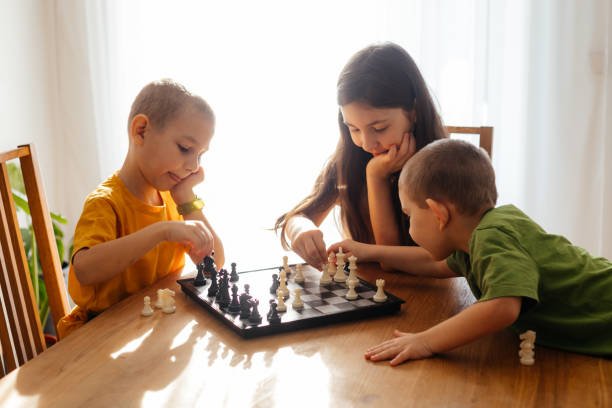
5. Private Home Tutors Independent, Travel-Based
A private tutor who visits your home can be personal and flexible if the tutor is skilled. But quality varies, travel adds cost and risk of delays, and missed sessions are common when calendars clash. Many home tutors do not use a shared dashboard, so progress tracking is weak.
Debsie gives you the same personal touch with better tools. You get recordings, notes, tiny homework, and regular events with fair pairings. You get level-matched peers, which makes practice real. You get a monthly report that guides praise at home. You remove travel and keep energy for learning.
Why Online Chess Training is The Future
Online chess training is not just a handy tool. It is the best way to learn for most families today. It fixes the old problems and gives new power to students, parents, and coaches. It turns every minute into clear growth. It keeps joy high and stress low. It fits a busy life in Patershol and all of Ghent.
The first reason is time. Travel steals time and energy. Online lessons give that time back. A child sits down fresh, learns for the full hour, and finishes with a smile. Over weeks, this adds up. Small steps, done often, beat big steps, done rarely. This is how strong skill grows.
The second reason is level match. Online, you can join a group that truly fits your level. You are not stuck in a mixed room where half the class is too easy and the other half is too hard. You learn at the right pace, with the right push, at the right moment. Your mind stays alert. Your effort lands in the right place.
The third reason is feedback. Online tools capture games and puzzles. A coach can see the exact move where a habit breaks. The coach can give one clear fix you can try today. You do it. You see it work. You feel proud. This loop is very strong. It makes hard things simple and repeatable.
The fourth reason is comfort. A calm chair, a clean screen, and a kind voice help the brain do deep work. Children feel safe asking a question. Shy students join in more. Strong students accept a push more easily. The class breathes. The mind grows.
The fifth reason is reach. Online training opens the world. You can learn from coaches who have taught players from many countries. You can meet sparring partners with fresh styles. You are no longer limited by street or district. This broad view builds a flexible mind. In chess, flexible minds win.
How Debsie Leads the Online Chess Training Landscape
Debsie does not just teach chess rules. We build thinkers. We turn quiet effort into clear skill. We help students plan, stay calm, and make good choices. We also make life easier for parents. Here is how we lead—and why that leadership matters to families in Patershol.
We start with care. The first session is a real welcome. We look, we listen, we learn who you are. We place you on a path that fits. We set one monthly theme and one tiny weekly focus. We keep words simple and kind. We keep tasks small and strong. We make sure every minute does real work.
We keep a clean rhythm in every class. Teach, try, reflect. One idea. Two examples. A few puzzles or a guided mini game. One key moment to reflect. This rhythm locks ideas in place. It fits all ages. It respects the way the brain learns.
We make homework tiny and daily. We do not bury you in tasks. We give five to ten puzzles that match your level. We add one short drill or a two-minute clip. You can do it even on a busy day. You can keep the chain unbroken. The brain loves chains like this. They make skills strong.
We run safe, friendly events. Every two weeks, we host online tournaments with fair pairings. Students play others at the same level. They face new styles. They feel real pressure in small doses. Afterward, they get a tiny review with two keeps and one fix. They know exactly what to try next week. Confidence grows without fear.
We send simple, honest reports. Parents see three numbers: tactics accuracy, blunder rate, and endgame score. They see one clear goal for next month. They can cheer with detail. They can help set good habits at home: a quiet chair, a glass of water, a deep breath before a move.
We train coaches to teach like humans. Our coaches are FIDE-certified or titled. They also learn the Debsie way: plain words, kind tone, firm structure. They know how to guide a shy beginner and how to stretch a bold teen.
If you want your child to grow as a player and as a person, the next step is easy. Take one free class. See the flow. Feel the calm. Watch how quickly your child understands the board and their own thinking. It takes one minute to book and costs nothing to try: https://debsie.com/take-a-free-chess-trial-class/.
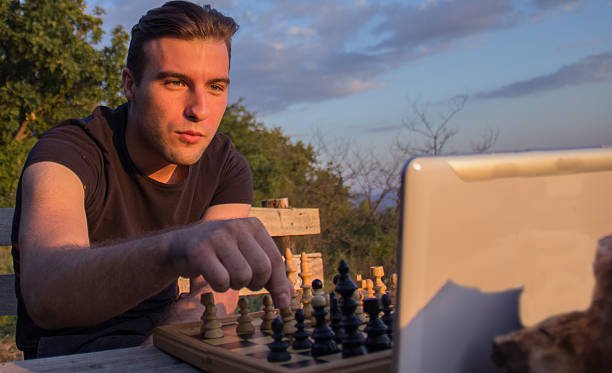
Conclusion
Patershol is a beautiful place to live, but evenings are full and time is tight. You need learning that fits your home, protects your child’s energy, and still builds strong skill, week after week. That is exactly what Debsie gives you.
We teach live. We speak in simple words. We follow a clear path. We send short notes that help parents cheer the right things. We keep the chain unbroken so progress feels steady and calm.
Online training is not a shortcut. It is a smarter route. No travel. No noisy rooms. No mixed levels that slow learning. Just a clean board, a kind coach, and one small step that your child can do today.
Over time, those small steps turn into big wins: fewer blunders, safer kings, clearer plans, and a braver mind under the clock. Children begin to pause, scan, and think. They carry that habit into homework and life.
Debsie leads because we teach habits, not just tricks. We build a monthly theme, a weekly focus, and a daily tiny task. We pair lessons with friendly practice and quick reviews. We keep joy high and pressure low.
We show your child how to breathe, check threats, ask what the opponent wants, and move with purpose. These simple moves change games—and they change confidence.
Comparisons With Other Chess Schools:
